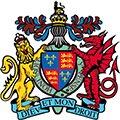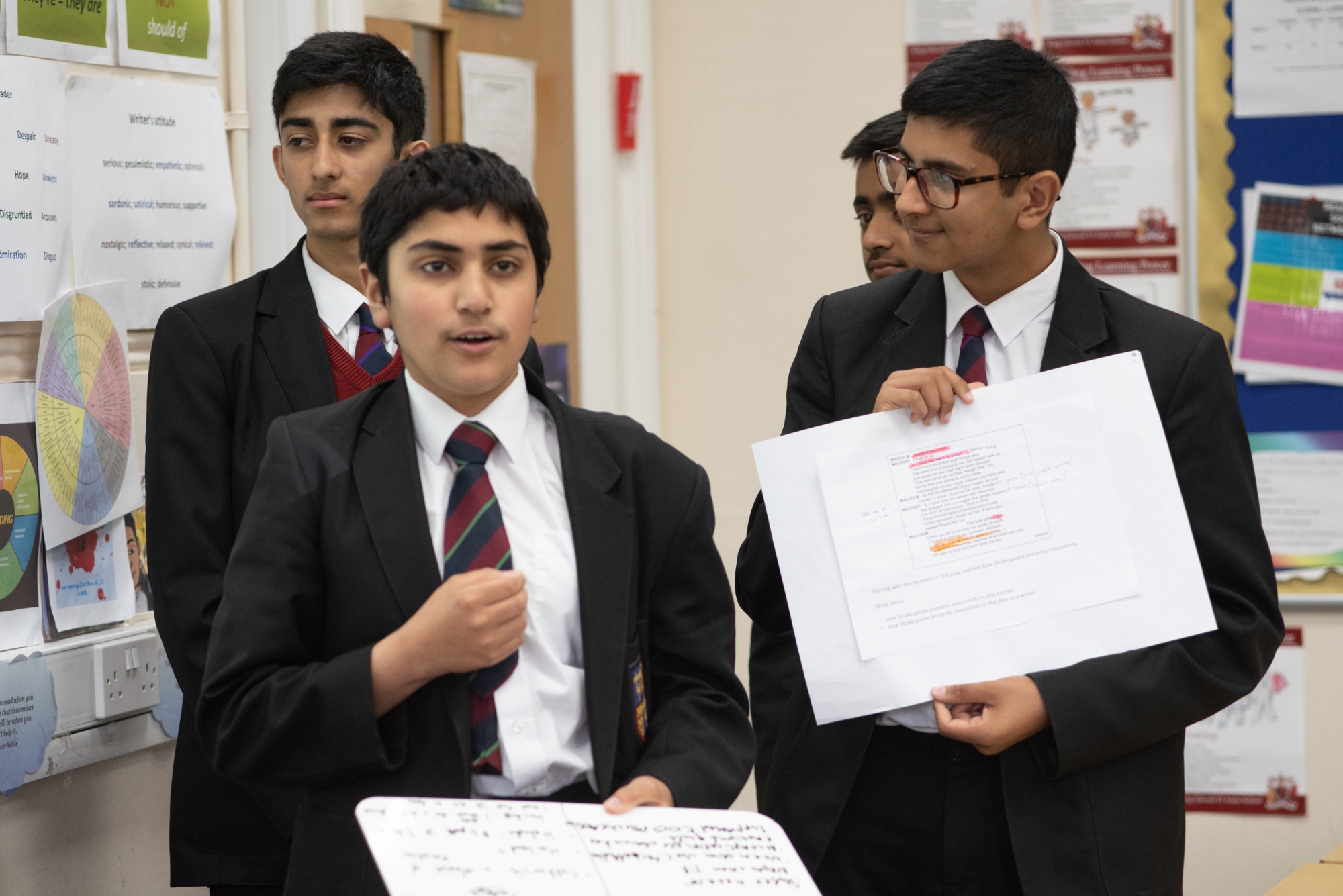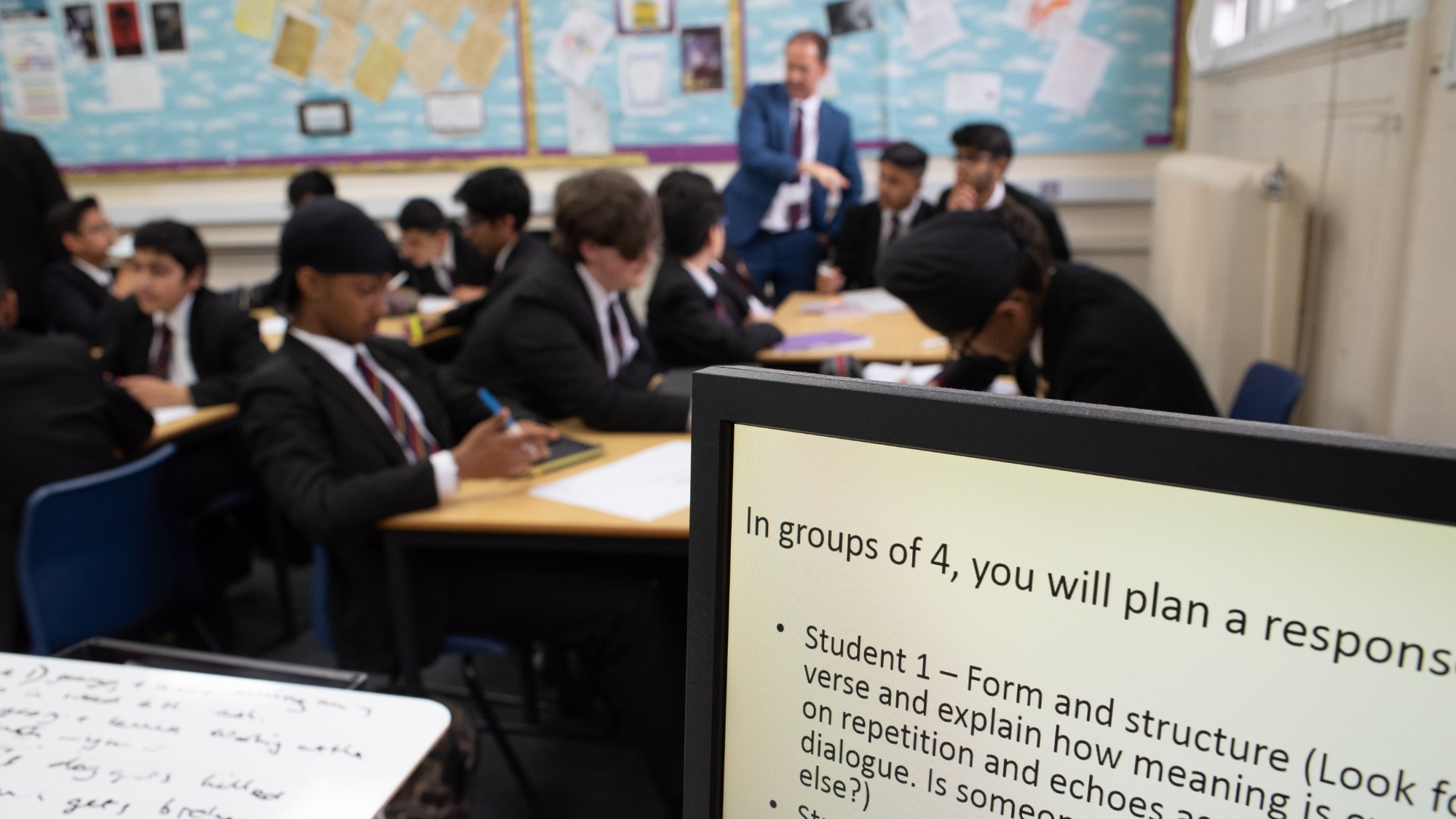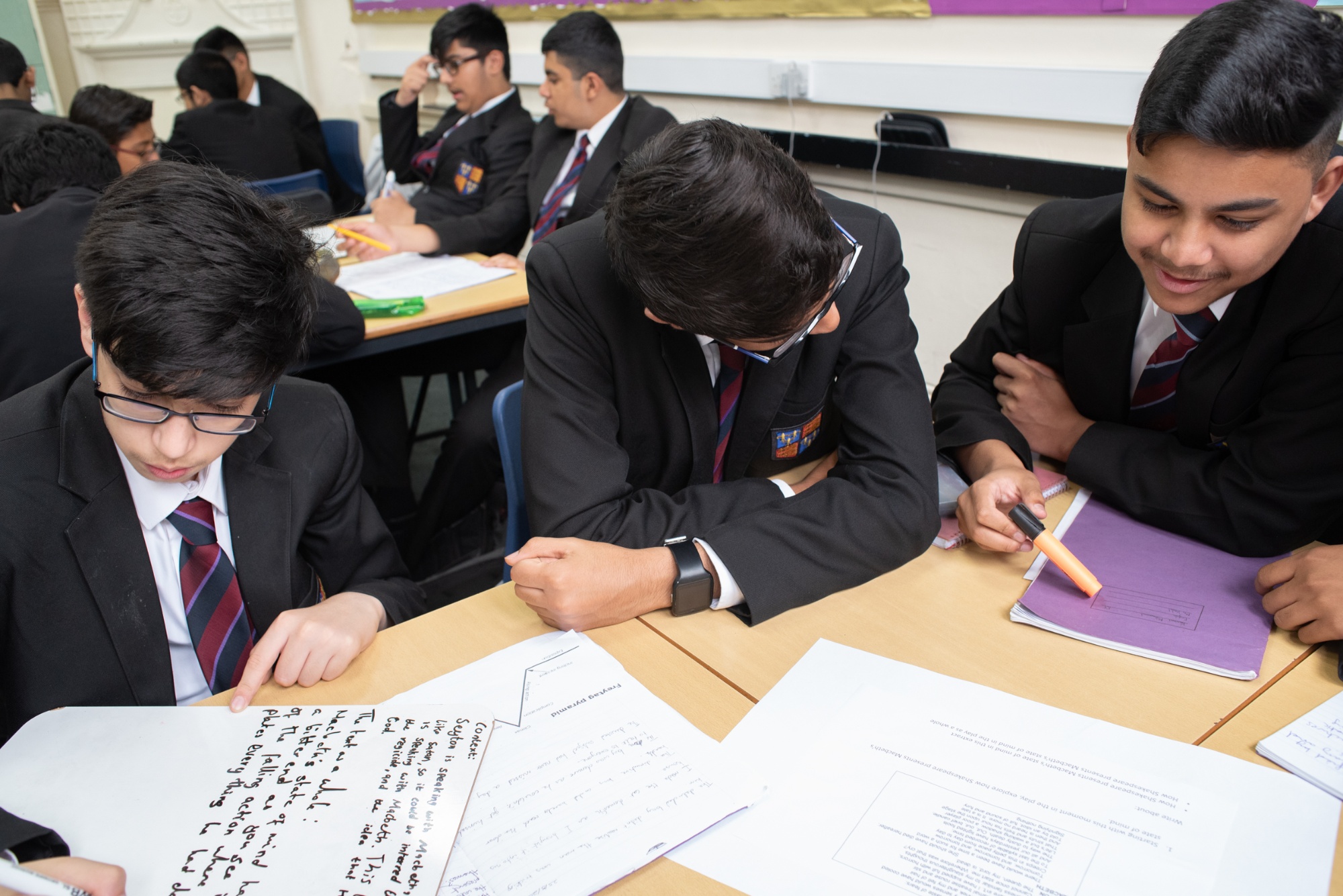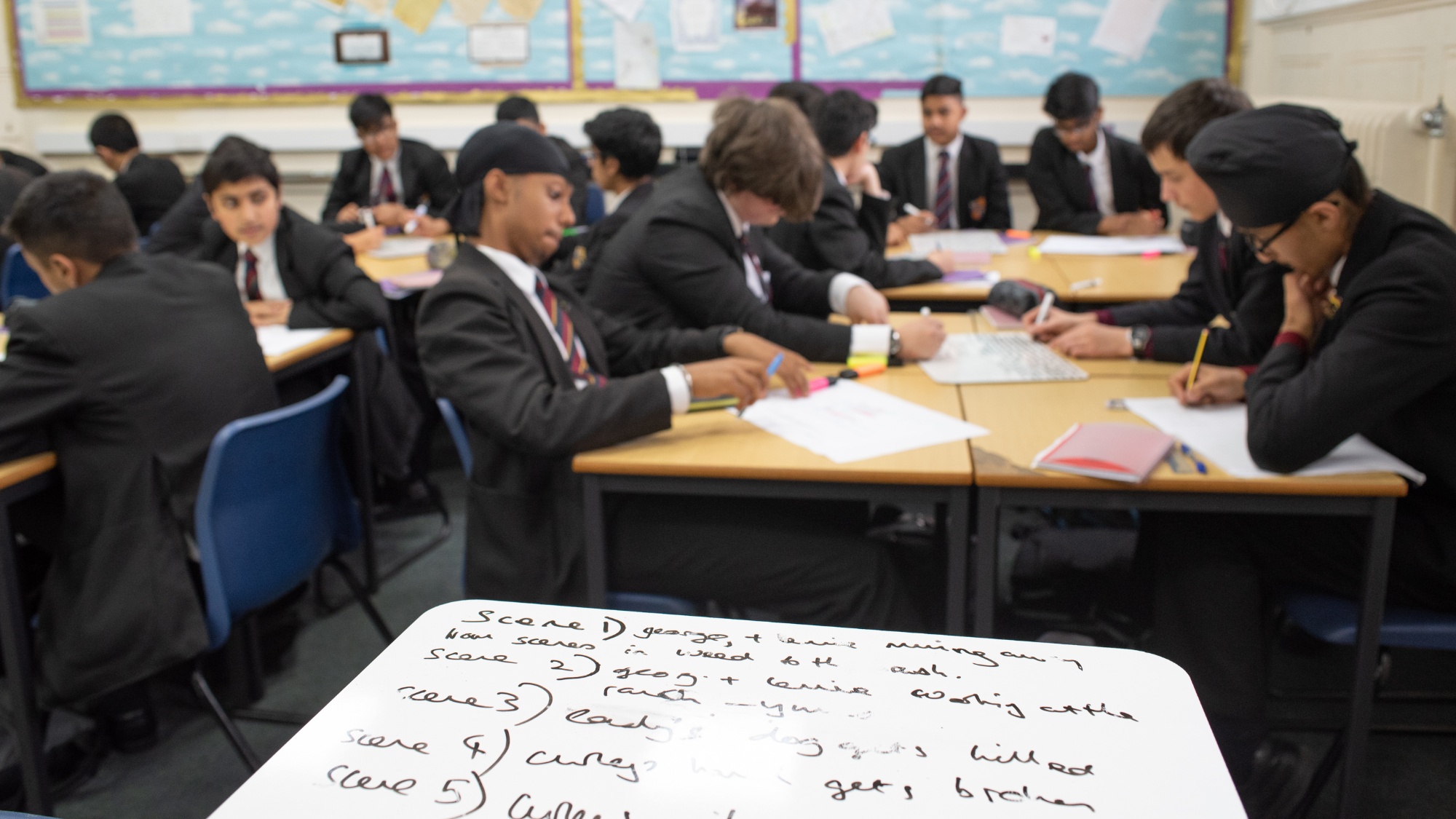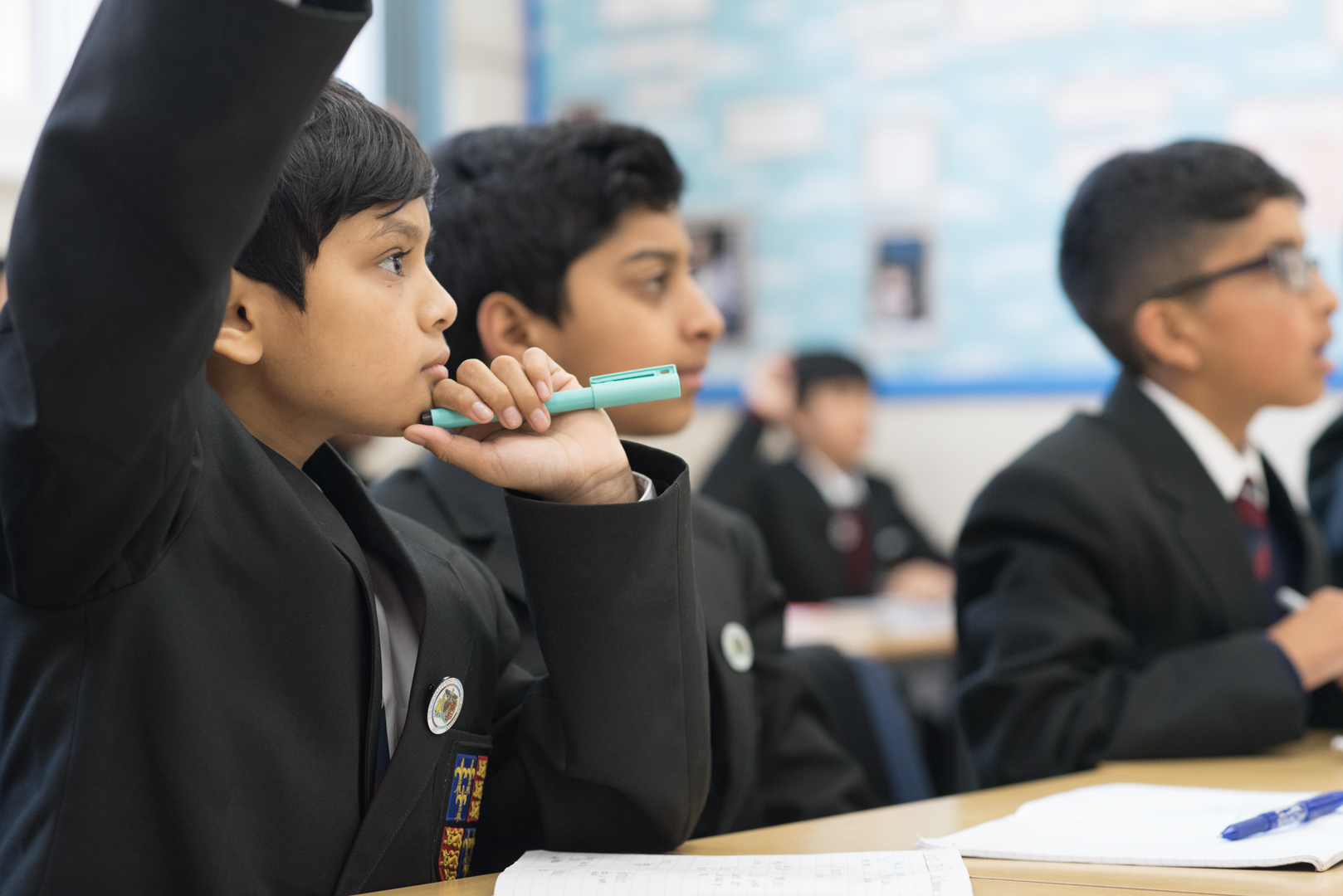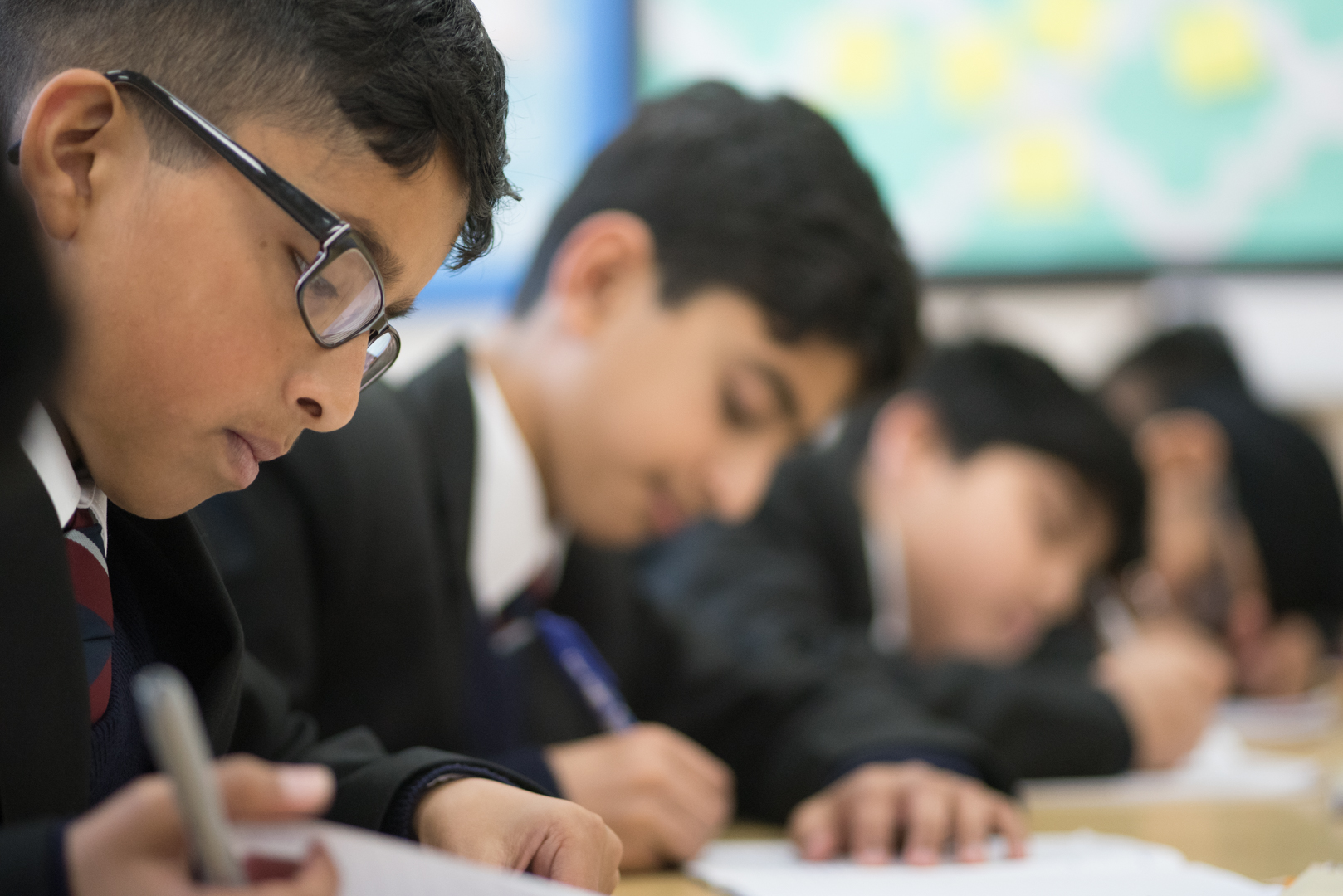English
Though Aston's English curriculum prepares students for the demands of GCSE and A Level, it also enhances and moves beyond these examinations by enabling our learners to be:
- imaginative, articulate and reflective as well as confident and secure in their thoughts, opinions and expression;
- focused, engaging and nuanced communicators in spoken and written word;
- inspired to explore complex ideas and material; · resilient when faced with challenges; and
- sensitive to the moral, spiritual and emotional experiences prompted by the subject.
They will experience learning activities that:
- have pace and challenge;
- provide a healthy combination of independent and collaborative work;
- give them ample opportunity to speak in front of others;
- give them the time and space to write independently;
- endow them with a sophisticated vocabulary; and
- are academically rigorous and personally challenging.
Teaching staff:
- Mr C Laverty (Subject Leader)
- Mrs A Hussain
- Mr M Smith
- Miss C Williams
- Ms G Aldridge
- Miss M Abdullahi
Educational visits:
- BBC Birmingham at The Mailbox in conjunction with the BBC Young Reporter competition
- Shakespeare Birthplace Trust
- Royal Shakespeare Company, Stratford
- Birmingham Repertory Theatre
- The Crescent Theatre
- Next Generation Awards at various universities
- Poetry Live
Year 7
| Summary of curriculum: |
In year 7, we ensure that students make an effective transition from primary English by introducing essay writing skills and developing extended writing by diversifying the range of forms pupils will be encouraged to adapt to. Students will learn the PETAL (Point, Evidence, Technique, Analysis, Link to focus) approach to analytical paragraphs. |
|---|---|
| Main topics: |
|
| Assessment throughout the year: |
|
| How parents can support their son’s learning: |
|
| Able and inspired opportunities: |
|
| Useful websites: |
|
Year 8
| Summary of curriculum: | Students will build on the skills learnt in year 7 and apply them in more challenging responses. Pupils will learn how to evaluate texts such as Shakespeare’s Tempest by considering a psychoanalytical critical lens and they will explore themes in the novel study that will encourage lateral thinking. The Picture Speaks a Thousand Words project uses iconic paintings to stimulate creative writing which is a pathway to how students will respond in the descriptive/narrative writing section of the GCSE English Language examination. |
|---|---|
| Main topics: |
|
| Assessment throughout the year: |
|
| How parents can support their son’s learning: |
|
| Able and inspired opportunities: |
|
| Useful websites: |
|
Year 9
| Summary of curriculum: |
Year 9 English lays down important foundations for the GCSE course. Travel, satirical and review writing will challenge students to learn and apply more nuanced writing conventions and develop a sophisticated personal style. Arthur Miller’s plays will familiarise pupils with the impact of a writer’s political views on the literary text produced (in the context of his investigation by McCarthy’s un-American Committee, and the cultural context of the American Dream). The WWI poetry unit will provide context for the study of the Power and Conflict anthology at GCSE. |
|---|---|
| Main topics: |
|
| Assessment throughout the year: |
|
| How parents can support their son’s learning: |
|
| Able and inspired opportunities: |
|
| Useful websites: |
|
Year 10
| Summary of curriculum: |
The majority of the GCSE content will be taught in year 10 with several opportunities built into the curriculum for students to demonstrate progress. At the beginning of a unit, pupils will be guided on how to respond to various demands of the GCSE tasks. They will then have a mid-point assessment to address misconceptions or issues with particular assessment objectives before having an end of unit test to determine a predicted GCSE grade. |
|---|---|
| Main topics: |
|
| Assessment throughout the year: |
|
| How parents can support their son’s learning: |
|
| Able and inspired opportunities: |
|
| Useful websites: |
|
Year 11
| Summary of curriculum: |
In year 11, students will be afforded the opportunity to refine their GCSE responses. With the majority of content taught in year 10, students will be in a position to respond to extracts by referring to the wider text. There will be an onus on essay and response structure in order to target assessment objectives and work within tight time constraints. |
|---|---|
| Main topics: |
|
| Assessment throughout the year: |
|
| How parents can support their son’s learning: |
|
| Able and inspired opportunities: |
|
| Useful websites: |
|
Year 12
| Summary of curriculum: |
During year 12, we ensure that students make an effective transition from GCSE English to the demands of A Level by modelling how to respond to tasks focusing on elements of tragedy. The curriculum aims to enable students to write confidently on methods employed by writers and to embed quotations to demonstrate perceptive understanding of the whole text. Students will also learn to apply a range of critical lenses including Marxist, feminist and post-colonial viewpoints. |
|---|---|
| Main topics: |
|
| Assessment throughout the year: |
Students will submit one essay per fortnight which will be assessed. Feedback up to the completion of content will place an onus on targets to help pupils improve their work. Once the content of the texts has been completed, work will be awarded a working at A Level grade. Every half term, students will be assessed in examination conditions on one or more section of a paper. |
| How parents can support their son’s learning: |
|
| Able and inspired opportunities: |
Students could read a selection of the following of critical studies of Othello:
|
| Useful websites: |
|
Year 13
| Summary of curriculum: |
In year 13, students will submit both their prose and poetry independent coursework studies and they will focus primarily on elements of crime fiction in the first term. After the February half-term, students will revise content studied in year 12, refine their examination technique and hone areas that may still require attention. |
|---|---|
| Main topics: |
|
| Assessment throughout the year: | Students will continue to submit one essay per fortnight which will be given a working at A Level grade. Every half term, students will be assessed in examination conditions on one or more section of a paper. |
| How parents can support their son’s learning: |
|
| Able and inspired opportunities: |
|
| Useful websites: |
|

